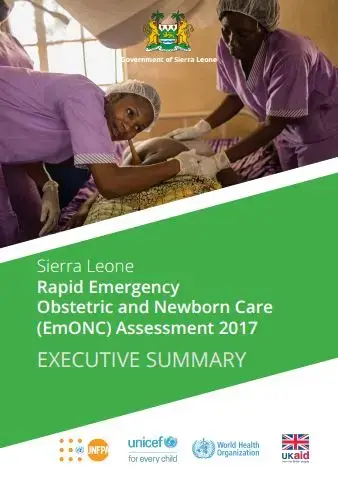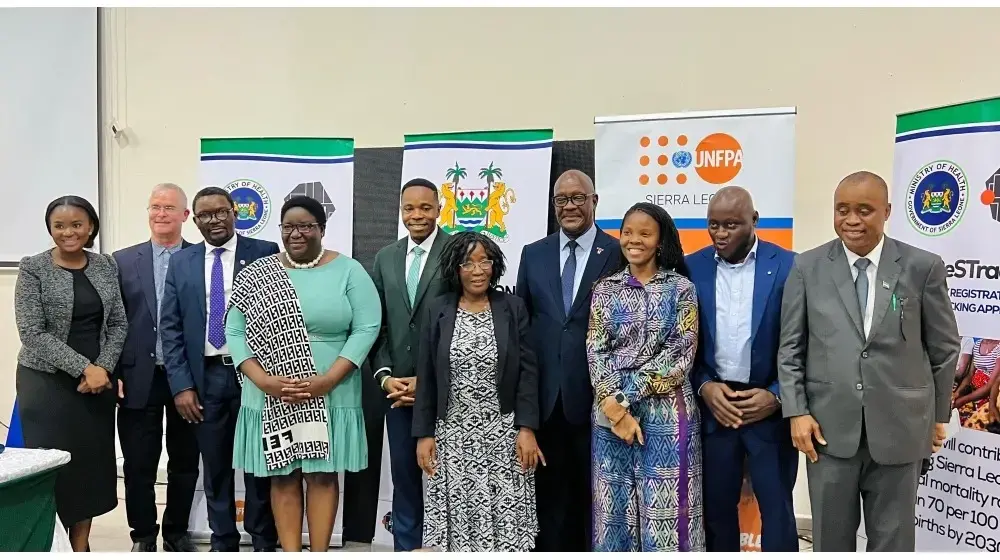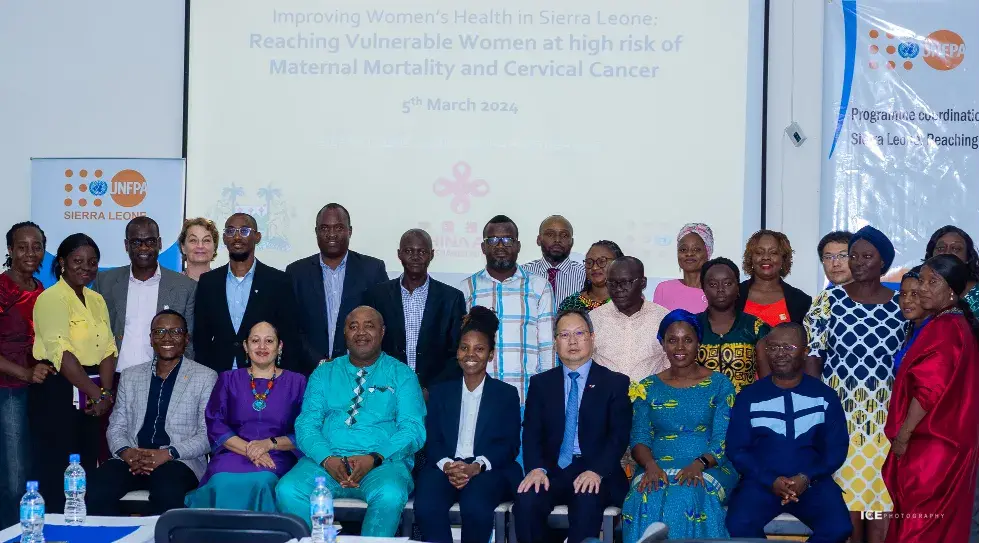Sierra Leone’s 2017 Emergency Obstetric and Newborn Care (EmONC) Assessment was the second such assessment since the first one conducted in 2008. The 2017 EmONC covered all hospitals and a sample of Community Health Centres (CHCs) and clinics that provided delivery or maternity services at the time of the survey.
The survey used abridged versions of the Averting Maternal Death and Disabilities Program’s recent EmONC assessment tools (Modules 1 to 5): infrastructure, communication, transportation, human resources and service statistics over a 12-month period (deliveries, newborn outcomes, direct and indirect obstetric complications, maternal and neonatal deaths, and referrals).1 The provision of EmONC signal functions and other maternal and newborn health services were also covered in this assessment.
All public and private hospitals and a 50 per cent sample of CHCs and private clinics were selected for this assessment. Accordingly, a total of 181 hospitals, CHCs and clinics (public and private) were visited and 173 that provided delivery services in the last 12 months prior to the survey were included in this analysis. Sixty-eight health personnel with a minimum health background qualification of a diploma (with two years of college education) served as data collectors and supervisors. Data collection was conducted between August and September 2017.





